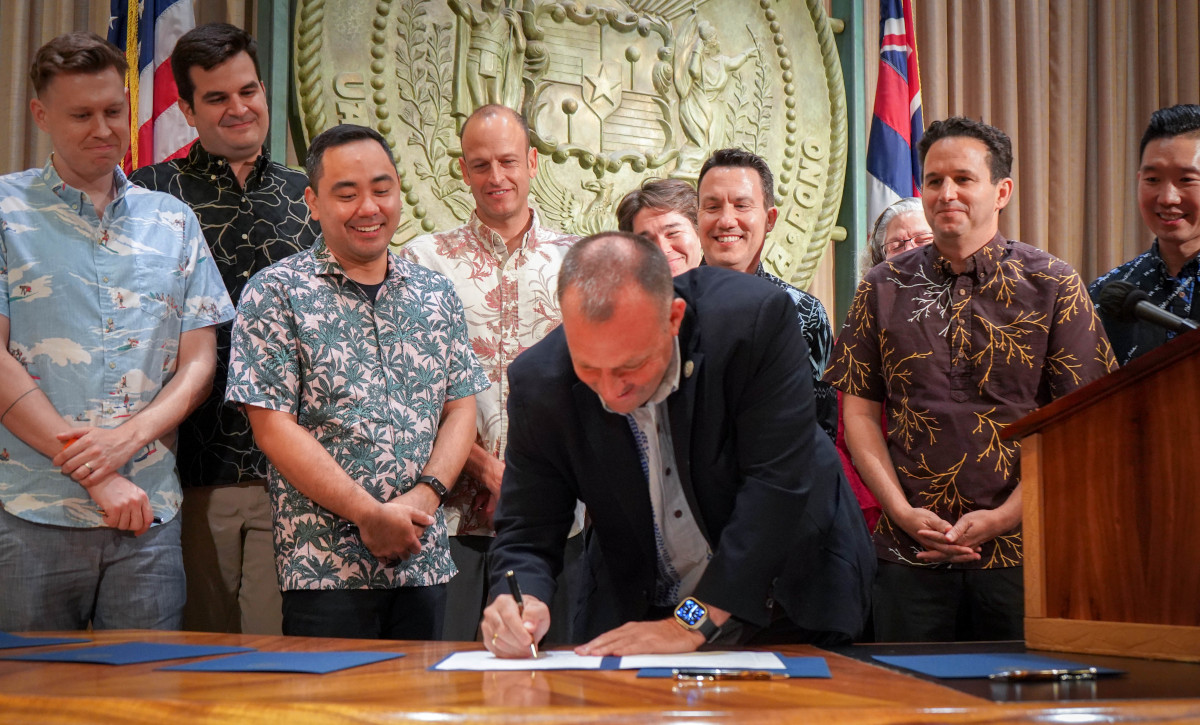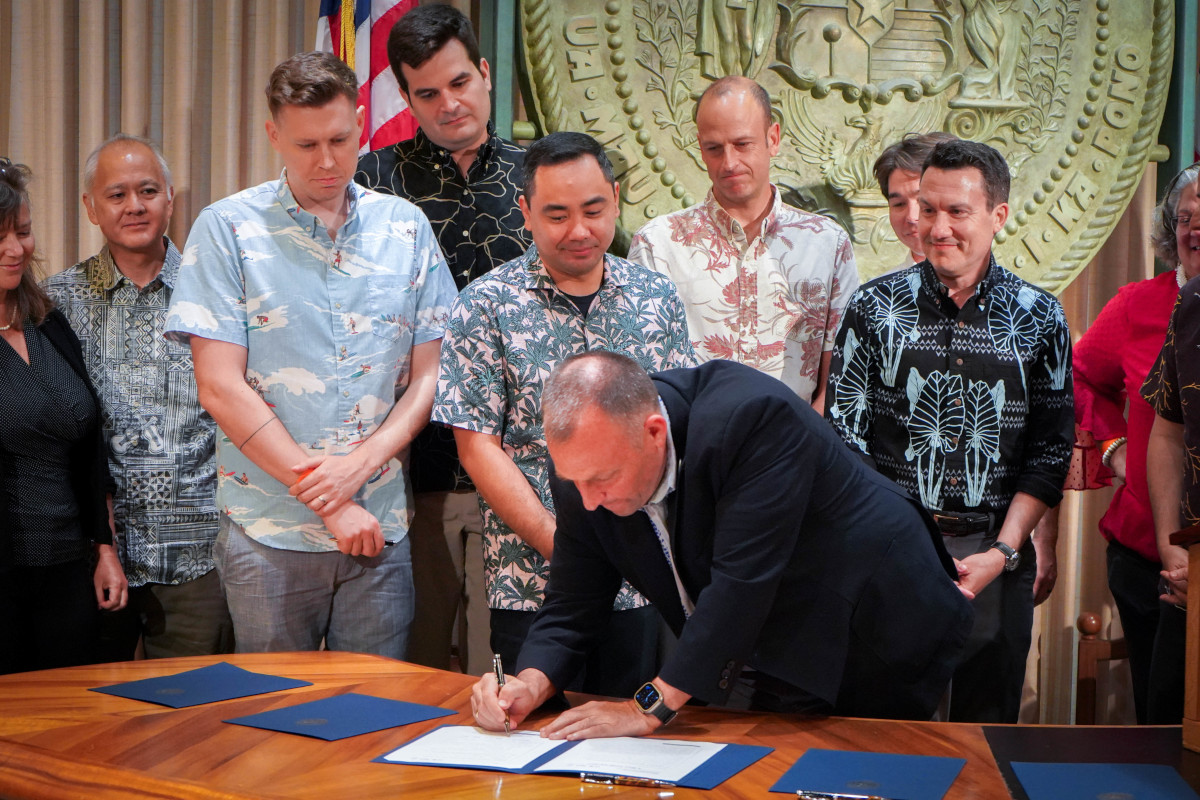livestream of the bill signing via Governor Green on Facebook
(BIVN) – Hawaiʻi Governor Josh Green signed into law several bills relating to affordable housing on Tuesday, during a ceremony held at the Capitol.
The new laws are the culmination of an effort during the 2024 legislative session to address the state’s housing crisis.
“Housing has been and continues to be a top priority for my administration,” said Governor Green. “This afternoon, I signed several bills that are aimed at tackling the severe housing shortage in our state. It’s a pretty exceptional day when we can move the needle on unlocking more housing across the state through permitting reform and by increasing financing for more affordable projects.”
The following bills were signed into law:
Senate Bill 3202: Requires counties to adopt or amend ordinances by December 31, 2026, to allow for at least two accessory dwelling units (ADUs) on all residentially zoned lots. The bill also prohibits private covenants from including certain restrictions, supporting the efficient use of limited residential lands and making housing more attainable for residents.
House Bill 1760: Enables the Hawai‘i Housing Finance and Development Corporation and counties to implement a bond volume cap recycling program, utilizing prior years’ tax-exempt private activity bond volume, while preserving the current volume cap to support affordable housing development.
House Bill 1925: Establishes and funds the Hawai‘i State Planning Act Phase II Task Force, continuing the work of the previous task force to guide long-range state development and housing policy solutions.
House Bill 2090: Directs counties to allow adaptive reuse of existing commercial buildings through their ordinances, increasing housing inventory by repurposing underutilized commercial spaces and office buildings.
Senate Bill 2066: Provides an alternative pathway for housing projects to seek exemptions from certain state laws and rules, expediting the regulatory process to increase affordable housing units.
Senate Bill 2133: Authorizes the Hawai‘i Housing Finance and Development Corporation to issue bonds for housing project infrastructure, financing the development of regional state infrastructure projects, particularly in transit-oriented development areas.
From the State of Hawaiʻi:
The Governor emphasized the importance of community involvement in shaping these legislative measures. “These bills represent the efforts of not only policymakers, departments, agencies, and stakeholders, but very importantly, the input of the community and so many who came out to testify on housing legislation.”
“We are finally doing something meaningful to make it easier for families, workers, and local people to live in Hawai‘i and afford a place to call their own,” said U.S. Senator Brian Schatz, Chair of the U.S. Senate Appropriations Subcommittee on Transportation, Housing and Urban Development. “Hawai‘i’s housing shortage took decades to build up because regulation is a one-way ratchet, so it’s not something that can be fixed in an instant. But for the first time in a while, I’m hopeful not just because of these bills, but because there is now a generation of lawmakers and other leaders that see this problem clearly and have the guts to do something about it.”



by Big Island Video News4:34 pm
on at
STORY SUMMARY
HONOLULU - Among the newly signed laws is a bill requiring counties to allow for at least two accessory dwelling units on all residentially zoned lots.